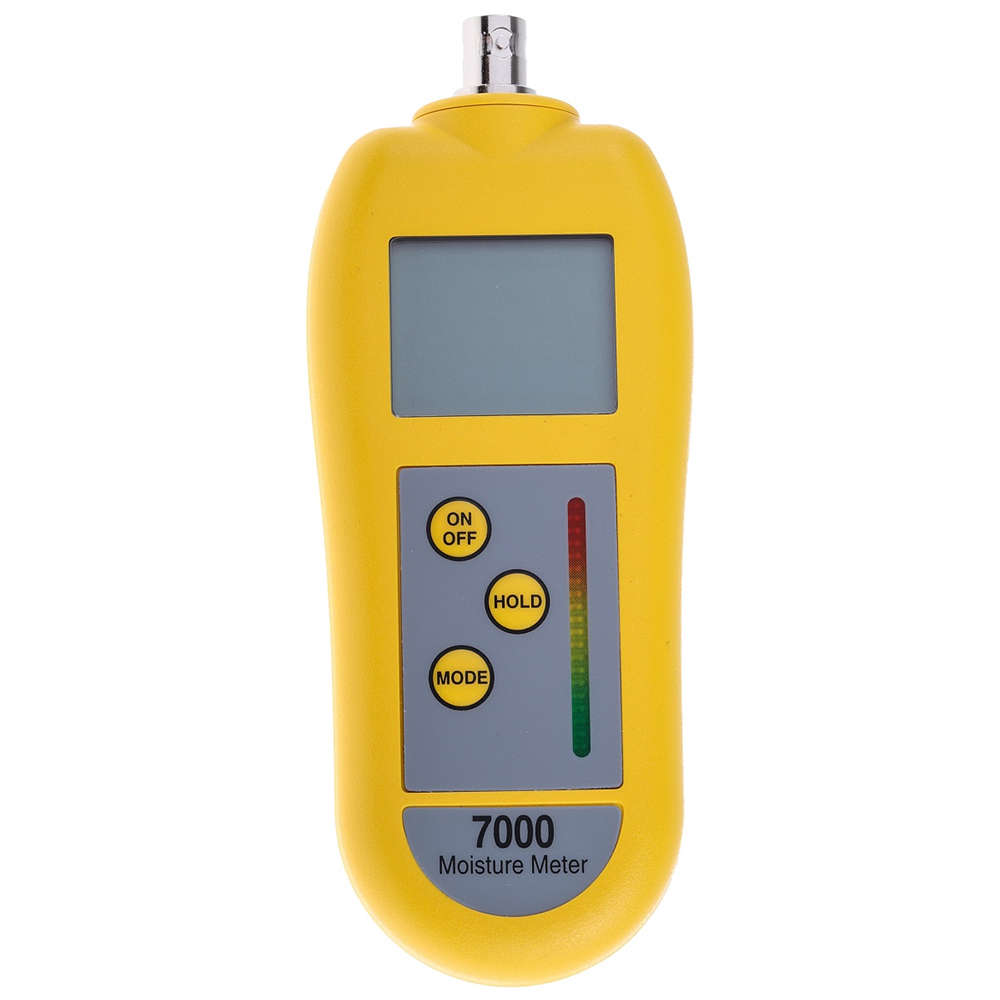How a Moisture Meter Can Help You Maintain Optimal Conditions in your house or Workplace
How a Moisture Meter Can Help You Maintain Optimal Conditions in your house or Workplace
Blog Article
The Ultimate Overview to Dampness Meters: A Comprehensive Introduction and How They Can Conserve You Money
Dampness meters serve as important tools in identifying and keeping an eye on moisture web content in materials, helping in protecting against pricey damages and making sure the top quality of products. Comprehending the subtleties of various types of wetness meters, their applications, and the prospective cost-saving advantages they offer can be a game-changer for specialists and businesses alike.
Sorts Of Wetness Meters
One common kind is the pin-type dampness meter, which measures the electric resistance in between 2 pins placed into a product. Pinless dampness meters, on the various other hand, use electromagnetic sensor plates to check a bigger location without creating damages to the material's surface.

In addition, there are likewise specialty dampness meters developed for specific products like dirt, grain, or hay. These meters give exact wetness readings customized to the one-of-a-kind residential properties of the product being examined. Infrared dampness meters determine the thermal buildings of a material to establish its wetness material non-invasively, making them useful for applications where pin or pinless meters may not be appropriate. Understanding the different kinds of wetness meters readily available can help sectors choose one of the most proper tool for their details moisture dimension demands.

Benefits of Utilizing Dampness Meters
Moisture meters use very useful benefits in accurately checking and assessing wetness degrees in varied products and atmospheres. One of the key advantages of utilizing moisture meters is the prevention of potential damage caused by excess dampness.
Moreover, making use of wetness meters can lead to raised power performance. In agricultural setups, dampness meters play a critical role in enhancing crop yields by making it possible for farmers to check dirt moisture levels and make informed watering choices.
How to Select the Right Wetness Meter
Picking the proper dampness meter includes considering essential variables such as product compatibility, dimension variety, and calibration accuracy. When choosing a moisture meter, it's vital to make sure that the meter is appropriate for the details product you will be screening. Different materials have differing electric homes that can impact dampness analyses, so selecting a meter developed for your product is crucial for precise outcomes. Furthermore, consider the dimension series of the wetness meter. Make certain that the meter can find wetness levels within the variety needed for your applications. Calibration precision is one more critical aspect to maintain in mind. Go with a wetness meter with reliable calibration to ensure precise and constant analyses. Some meters may call for periodic calibration adjustments, so comprehending the calibration procedure is necessary. By very carefully examining these elements, you can select a moisture meter that meets your requirements and offers exact moisture dimensions for your tasks.
Proper Methods for Moisture Meter Use

Price Cost Savings With Dampness Meter Applications
How can the strategic use of moisture meters cause substantial cost savings throughout numerous industries? Dampness meters play an important duty in cost financial savings by stopping prospective damages and making certain quality assurance in different industries. In the farming industry, moisture meters help in determining the ideal time for gathering plants, stopping over-drying or excess wetness that can affect the last item's top quality. This exact tracking helps farmers prevent unneeded losses and maximize their return.
Similarly, in building and construction, moisture meters aid prevent expensive damages by identifying moisture degrees in structure materials, such as wood or concrete, which can bring about structural problems if not attended to promptly. By determining trouble areas early, contractors can take restorative actions to avoid comprehensive repair work or replacements, eventually conserving time and cash.
Additionally, in the food processing sector, moisture meters are vital for checking product quality and making sure conformity with safety and security regulations. By accurately gauging moisture content in food, makers can protect against spoilage, maintain freshness, and decrease waste, leading to significant expense savings. Generally, the calculated application of dampness meters is a beneficial financial investment that can bring about considerable expense reductions and enhanced efficiency across various industries.
Conclusion
In content conclusion, wetness meters are useful tools for detecting and gauging wetness degrees in various products. By utilizing the ideal moisture meter and adhering to proper strategies, users can successfully protect against pricey damages created by excess moisture.
Wetness meters serve as vital tools in finding and monitoring moisture web content in materials, helping in preventing expensive problems and ensuring the high quality of items. Infrared moisture meters gauge the thermal residential or commercial properties of a product to establish its moisture material non-invasively, making them beneficial for applications where pin or pinless meters might go now not be suitable.Wetness meters use vital advantages in properly evaluating and checking wetness degrees in varied products and settings. In agricultural settings, moisture meters play a vital duty in maximizing plant yields by allowing farmers to check dirt moisture levels and make informed irrigation decisions.In conclusion, moisture meters are valuable devices for spotting and determining wetness levels in different materials.
Report this page